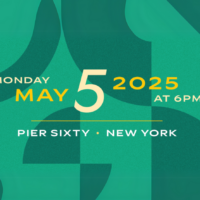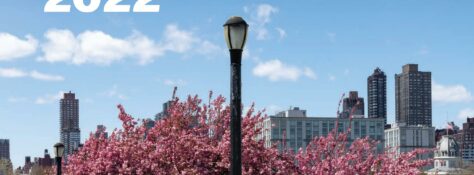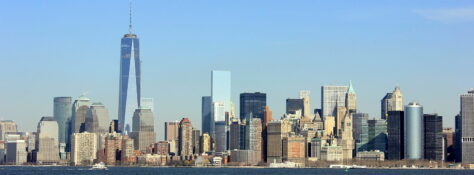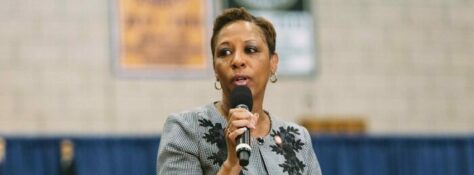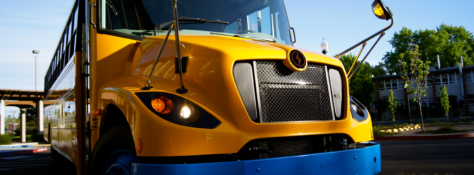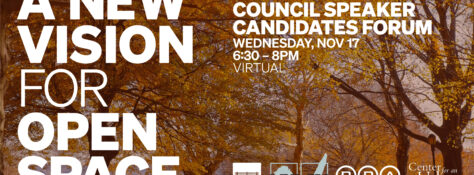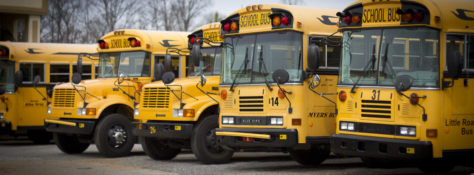As New York City begins strategizing for the new year, our new administration and Council Members have the opportunity to start making transformative investments in our environmental infrastructure and resiliency. NYLCV’s newest Policy Agenda lists what issues should be made top priority in the transportation, energy, public health, conservation, and environmental justice sectors, and highlights the legislative opportunities that will get us there. We hope to build upon our progress made last year and continue making bold policy decisions for the good of our community. Below are some of the main points made in this year’s Policy Agenda.
Learn MoreA major focus of NYLCV/EF’s efforts will be directed toward combating climate change by reducing emissions from the transportation sector; centering equity as we fight climate change; investing in parks, natural areas, and green spaces; and striving toward zero waste. NYLCV will continue to advocate for New York to transition to a citywide organic waste collection program, electrify its fleet, expand the Open Streets program, and improve micro-mobility options.
Learn MoreAs we ring in the new year, New York City welcomes a new City Council to preside over its districts. Bills that did not pass in 2021 were filed for end of session, and must now be reintroduced to the new City Council this month. These bills are crucial to preserving the health and prosperity of its people and environment for decades to come, and must be the top priority of each and every council member.
Learn MoreWhile the next Speaker of the New York City Council is not officially solidified, Adrienne Adams of District 28 confirmed that she has enough votes to secure her victory. She is set to be the first Black Woman to be speaker of the 51 member body and will bring unique viewpoints and priorities to the office coming from an outer borough district.
Learn MoreNYLCV has been working on an interactive map that shows the location of school bus depots across NYC and gives a visual representation of the disproportionate number of school bus depots located in environmental justice areas, areas with high asthma rates, and areas with poor air quality. We took an original map created by the New York Lawyers for the Public Interest (NYLPI) and layered on relevant data showcasing air quality and potential environmental justice (EJ) areas across the city. We used the United Hospital Fund Boundaries to outline different neighborhoods across the City.
Learn MoreWith the incoming class of new Councilmembers set after the 2021 general election, the city is turning its attention to the City Council Speaker’s race. The speaker is an incredibly important role, able to control what legislation is voted on in the council, appoint committee chairs, and have a major say in the NYC budget among many other powers.
Therefore, the future of the environment and our fight against climate change in NYC will lie heavily on the shoulders of the next speaker. NYLCV strongly believes that the next speaker will need to be an environmental champion that takes bold and progressive actions to help us reach many of the goals and commitments we have made to reduce greenhouse gas emissions, protect open spaces and natural resources, value public health, and expand transportation alternatives to automobiles.
Learn MoreNews
Recently NYLCV and the NYC Clean School Bus Coalition held a virtual roundtable discussion in conjunction with NYCSBUS to speak about the importance of school bus electrification in New York City, especially within environmental justice neighborhoods and disadvantaged communities.
Learn MoreAs global fossil fuel emissions are the leading cause of climate change, leaders all over the world have come up with solutions to lower their region’s carbon footprint. In New York, policies have been implemented to help reduce gas emissions through transportation, industrial, and power sectors. Since the primary source of the city’s emissions comes from buildings, it is evident that building decarbonization is necessary to achieve our climate goals. One of the most critical ways to fight climate change in New York City is to electrify buildings. NYLCV therefore supports Intro 2317, a bill that would place an emissions cap on all new and renovated buildings and encourage building electrification. However, we feel that there need to be some major amendments to the bill so that we approach the complexities of building electrification pragmatically.
Learn More
